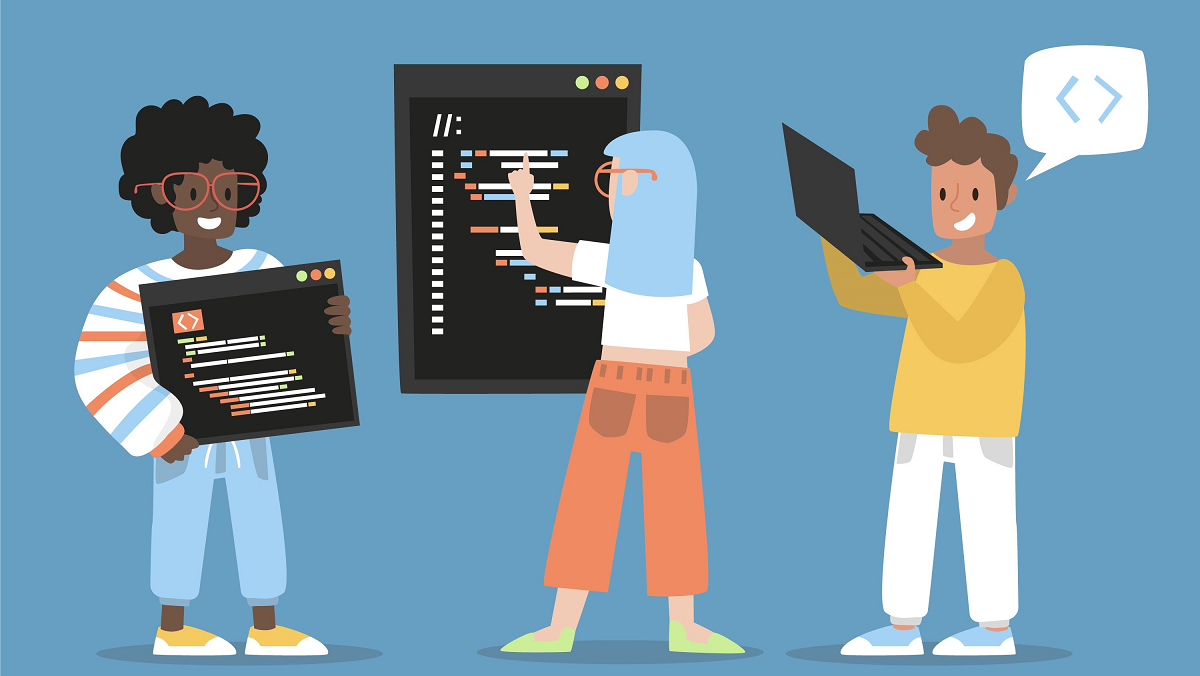
In today's tech-centric world, early coding instruction from K-5 has gained prominence because knowledge and skills go beyond the classroom and help shape future STEM success. Its importance is reflected with an annual celebration on September 13th, known as Programmers Day, which honors the diverse contributions of programmers across various fields like technology, science, and entertainment, employing languages like Python and Java.
Coding cultivates vital skills such as critical thinking, problem-solving, and computational thinking, applicable throughout the curriculum. It fortifies math proficiency, enriches scientific comprehension, and instills engineering mindsets. It also acquaints students with technology and digital literacy. This foundation equips them for future STEM pursuits, making education a launching pad for promising futures. Let’s explore the importance of early coding, its connection with robotics, and its incorporation into various subjects.
Building the Foundations of Learning
Fostering Critical Thinking and Problem-Solving Skills
Coding is not just about learning a programming language - it's about nurturing essential skills such as critical thinking and problem-solving. When students engage in coding activities, they are presented with real-world challenges that require logical reasoning and creativity to solve. These skills serve as a solid foundation for future academic and professional endeavors.
Developing Computational Thinking
Computational thinking, a key element of coding, encourages students to break complex problems down into smaller, manageable parts. This analytical approach not only helps in coding but also in other subjects like math and science. Computational thinking helps students approach problems systematically, improving their ability to tackle challenging tasks across the curriculum.
Preparing for STEM Success
Strengthening Math Skills
Coding often involves mathematical concepts like sequencing, patterns, and algorithms. When students apply coding principles, they reinforce math skills naturally. This early exposure supports increased confidence and proficiency in math, which is critical for advanced STEM studies.
Watch this video for an example of programming in a robotics lesson.
Enhancing Science Understanding
Coding can bring abstract scientific concepts to life. Through coding, students can simulate experiments, create models of scientific events, and understand complex processes visually. These hands-on experiences deepen their understanding of scientific principles and spark their interest in pursuing STEM-related fields.
Need recommendations for grade appropriate robotics lessons? Find out what Hannah recommends.
Developing Engineering Mindsets
Coding and robotics are closely linked. As students program robots to perform tasks, they are essentially engaging in engineering activities. They learn how to design, build, and improve solutions, fostering an engineering mindset that is invaluable for future STEM careers.
Learn more about standards-aligned activities from the award-winning MyStemKits.
Exploring Technology
Coding introduces students to the world of technology and digital literacy. They become familiar with hardware and software, understanding how technology works. This knowledge is crucial in our tech-driven world and acts as a starting point for more advanced studies in computer science.
Learn more about an innovative solution to incorporate coding in your classroom: MyBot Recruit
Early coding education in grades K-5 serves as the cornerstone for future STEM success. As we celebrate Programmers Day and acknowledge the remarkable contributions of programmers to our tech-driven world, it's clear that coding is not just about mastering programming languages - it's about nurturing critical thinking, problem-solving, and computational skills that go beyond the classroom. These skills strengthen math proficiency, deepen scientific understanding, and foster engineering mindsets. Most importantly, they introduce students to the world of technology and digital literacy, setting them on a path to excel in STEM-related fields. Embracing coding in education is not merely an educational choice - it's an investment in the bright futures of our young learners, equipping them to thrive in an increasingly complex and digital world.
Explore our comprehensive suite of STEM education solutions here: MimioSTEM.


